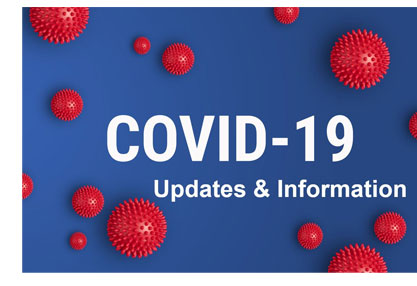THIS ISSUE'S HEADLINES
Remote Workers in Rhode Island: State Regulations May Actually Create Personal Jurisdiction in Rhode Island Courts
The Importance of Conditions Precedent in Licensing, Permitting and Purchase Agreements
Executing A Carefully Drafted Confidentiality Agreement in an M&A Transaction
Stay Informed — PLDO COVID-19 Resource Library

REMOTE WORKERS IN RHODE ISLAND: STATE REGULATIONS MAY ACTUALLY CREATE PERSONAL JURISDICTION IN RHODE ISLAND COURTS
 The United States District Court for the District of Rhode Island recently held that it had personal jurisdiction over an out-of-state employer, despite the fact that the employer only had one remote employee who worked in Rhode Island. That employee—who was also the plaintiff—was terminated from his employment and subsequently filed suit, alleging he had been discriminated against in violation of the Age Discrimination in Employment Act of 1967, the Rhode Island Fair Employment Practices Act, and the Rhode Island Civil Rights Act of 1990. The United States District Court for the District of Rhode Island recently held that it had personal jurisdiction over an out-of-state employer, despite the fact that the employer only had one remote employee who worked in Rhode Island. That employee—who was also the plaintiff—was terminated from his employment and subsequently filed suit, alleging he had been discriminated against in violation of the Age Discrimination in Employment Act of 1967, the Rhode Island Fair Employment Practices Act, and the Rhode Island Civil Rights Act of 1990.
The Court in Gregory Madden v. Rittal North America, LLC (“Madden”) held that exercising personal jurisdiction over the out-of-state employer would not run contrary to the protections afforded by the Due Process Clause of the Fourteenth Amendment, in part because the employer had “purposely availed itself” of the laws of Rhode Island. One of the most prominent factors in the Court’s analysis was that the employer purchased workers’ compensation insurance coverage in Rhode Island. To the Court, this indicated the employer knew it might incur liability in Rhode Island and, as a result, being required to appear in a Rhode Island court was a “natural and foreseeable consequence” of the same.
But herein lies the catch—several states require employers with one or more employees working within its borders to do many of the things that the Court in Madden considered in reaching its conclusion. For example, pursuant to Rhode Island law, employers are required to obtain workers’ compensation insurance, register for a tax identification number, and designate a registered agent—all of which were specifically mentioned by the Court in Madden as factors weighing in favor of exercising personal jurisdiction over the out-of-state employer. Thus, by simply complying with the applicable state regulations, employers open themselves up to the possibility of being sued in any jurisdiction in which they employ even one remote worker.
If you have any questions about Employment Law or would like further information, please contact Attorney Kathryn M. Couture at 401-824-5100 or kcouture@pldolaw.com.
[back to top]

THE IMPORTANCE OF CONDITIONS PRECEDENT IN LICENSING, PERMITTING AND PURCHASE AGREEMENTS
 A condition precedent is a condition in a contract that must occur before another party is required to perform. In purchase and sale agreements, there are often several conditions precedent that must be satisfied before a party is required to close. Particularly, in the sale of a business, these are often much more important for the buyer rather than the seller, as the seller’s primary concern is generally receiving payment whereas the buyer is concerned about operating a successful business. Failure to properly include the correct conditions precedent can cause a party significant problems, and even lead to breach of the contract, loss of the deposit, and money damages. A condition precedent is a condition in a contract that must occur before another party is required to perform. In purchase and sale agreements, there are often several conditions precedent that must be satisfied before a party is required to close. Particularly, in the sale of a business, these are often much more important for the buyer rather than the seller, as the seller’s primary concern is generally receiving payment whereas the buyer is concerned about operating a successful business. Failure to properly include the correct conditions precedent can cause a party significant problems, and even lead to breach of the contract, loss of the deposit, and money damages.
Common Conditions Precedent
Perhaps the most well-known condition precedent is that the closing is subject to the buyer receiving financing. This provision is standard in all form residential real estate contracts and helps to illustrate the concept of conditions precedent, generally. The buyer’s requirement to close the transaction and pay the seller is subject to the buyer actually receiving the funds to pay the seller. Without that condition precedent in place, if the buyer did not get financing, he would not be able to just walk away, but rather would be in breach.
Other common conditions precedent include the requirement that the buyer receive approval from the applicable regulatory body before closing. In healthcare, hospitality, building and trades, cannabis, and other regulated industries, licenses and permits are critical to operate the business being acquired. Often, the regulatory body wants to investigate and approve the new buyer before allowing it to operate the business. Failure to get that approval before closing could lead to suspension or even loss of the business’ license, in which case much of the value of the business that the buyer just paid for evaporates instantly.
Summary
Understanding the business and the buyer’s own needs are critical in determining what conditions precedent should be negotiated into a purchase agreement. Such conditions precedent will ultimately protect the buyer from being obligated to honor the agreement, if those conditions have not been satisfied.
If you would like further information on licensing, permitting, and purchase and sale agreements, please contact Attorney Joshua J. Butera at 401-824-5100 or email jbutera@pldolaw.com.
[back to top]

EXECUTING A CAREFULLY DRAFTED CONFIDENTIALITY AGREEMENT IN AN M&A TRANSACTION
 The execution of a confidentiality agreement - or what is also referred to as non-disclosure agreement (NDA) - is typically the first official stage of any merger or acquisition. Prior to this stage, a general discussion may have already occurred, and relevant information shared, by and among the parties involved in the transaction. The execution of a confidentiality agreement - or what is also referred to as non-disclosure agreement (NDA) - is typically the first official stage of any merger or acquisition. Prior to this stage, a general discussion may have already occurred, and relevant information shared, by and among the parties involved in the transaction.
The initial draft of an NDA is usually prepared by the target company in order to make certain that crucial information, including financial information, remains confidential and not disclosed to third parties outside of the buyer’s and seller’s circles. The NDA terms will generally permit the receiving party to disclose confidential information to its representatives. The term “representatives” must be clearly defined, and the NDA terms should outline the specific steps that the receiving party must take prior to disclosing the information.
The most critical aspect of the NDA is the definition of “confidential information.” This includes, but is not limited to, information relating to the disclosing party’s business operation, any notes or analysis, or materials relating to the negotiations, whether or not this information was labeled “confidential.” The typical provisions of a carefully drafted NDA would include: “an obligation to return or immediately destroy the information provided should the deal be cancelled; the right of the disclosing party to seek and obtain injunctive relief to prevent unauthorized disclosures.”
The benefit of an NDA is that it allows the parties to clearly define the scope of the protected information and each party’s rights and obligations with respect to the disclosed information. It also provides an open dialogue between the parties to address preliminary issues that may pertain to the proposed structure of the intended transaction or the buyer’s solicitation of the target company’s employees during the negotiations. The terms of the NDA will also preserve the protected nature of proprietary information known as “trade secrets.”
Despite the execution of an NDA, there are certain limitations to the protection it provides. Once confidential information has been disclosed, suffice to say, “the horse is out of the barn,” and that information may not be recoverable. In this event, the disclosing party has the burden of establishing a breach and the remedy may be limited to damages for the breach. Additionally, the disclosing party may not be able to effectively prevent the party receiving the confidential information from using it to its advantage if the transaction does not take place.
It is important that an NDA be executed prior to disclosing confidential information. Should information be disclosed prior to executing the NDA, its terms must state that any information received prior to its execution is also confidential. Another consideration when drafting an NDA is whether to make it applicable to all parties. A one-way NDA only restricts the receiving party and does not protect non-business information, i.e., deal terms. If the NDA applies to all parties, it will protect both parties, including deal terms. The disadvantage to a mutual NDA is that the restrictions are imposed on both parties regardless of which one has leverage in the negotiations.
It is also important when drafting the NDA to include what is referred to as a “standstill provision,” which would prohibit specific conduct by the party signing it to acquire control of the other party. If the parties to the transaction are competitors, the terms of the NDA should include specific procedures to reduce any business and legal risks that would occur if disclosed or used.
In summary, the execution of a carefully drafted NDA, as outlined above, is one of the most important aspects of an M&A transaction. If you have questions regarding confidentiality agreements or mergers or acquisitions, please contact PLDO Managing Principal Gary R. Pannone at 401-824-5100 or email gpannone@pldolaw.com.
[back to top]

 STAY INFORMED – PLDO COVID-19 RESOURCE LIBRARY STAY INFORMED – PLDO COVID-19 RESOURCE LIBRARY
PLDO’s team of attorneys continue to add updates and advisories regarding the pandemic and its impact on families, businesses and organizations. To access our COVID-19 Resource Library, click here.
[back to top]
|







